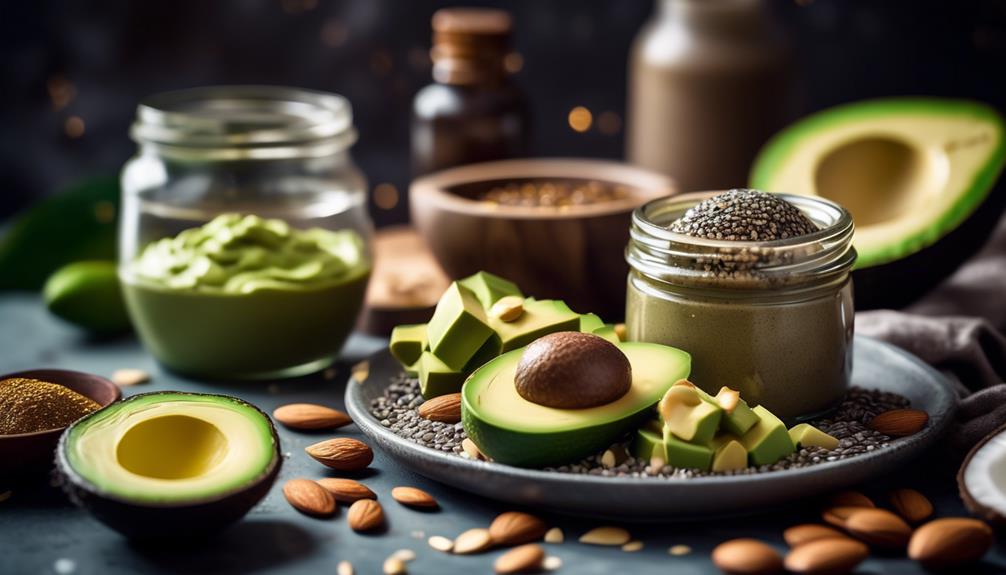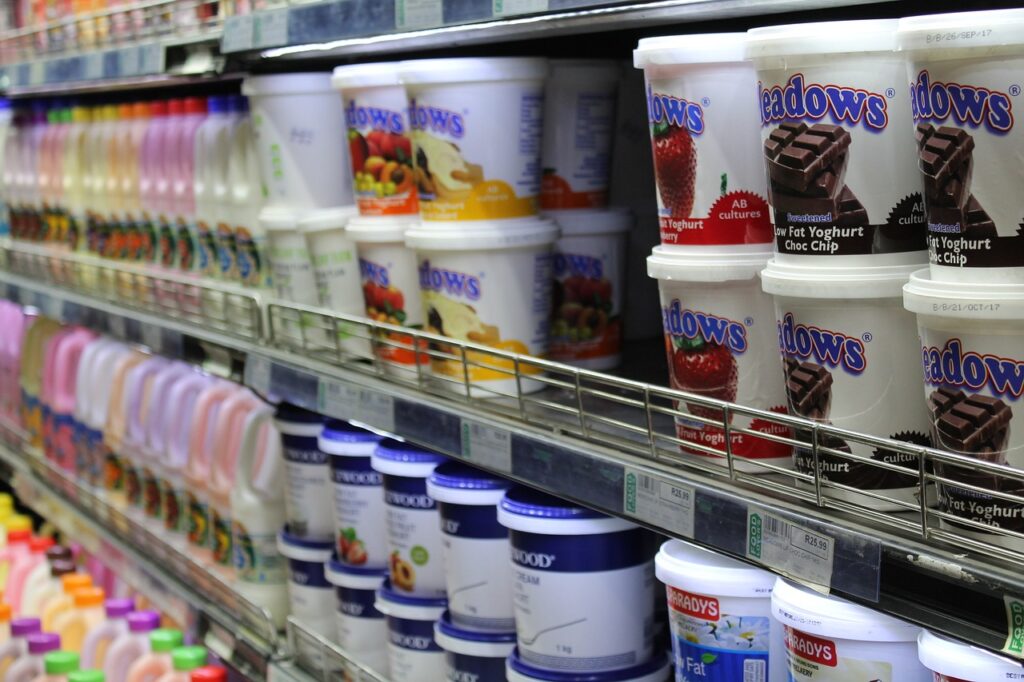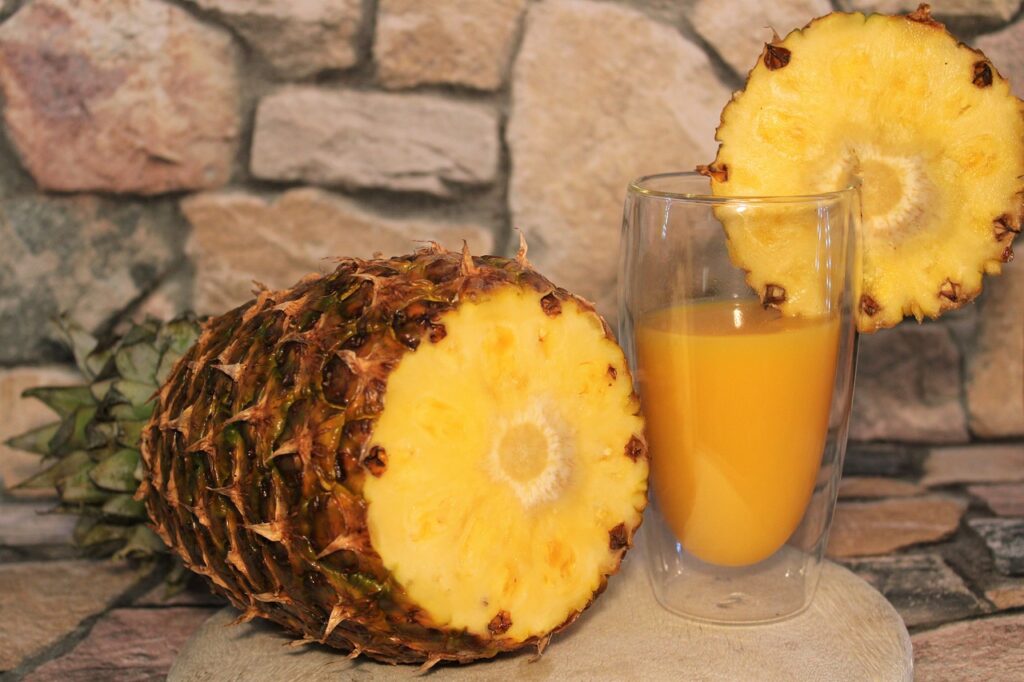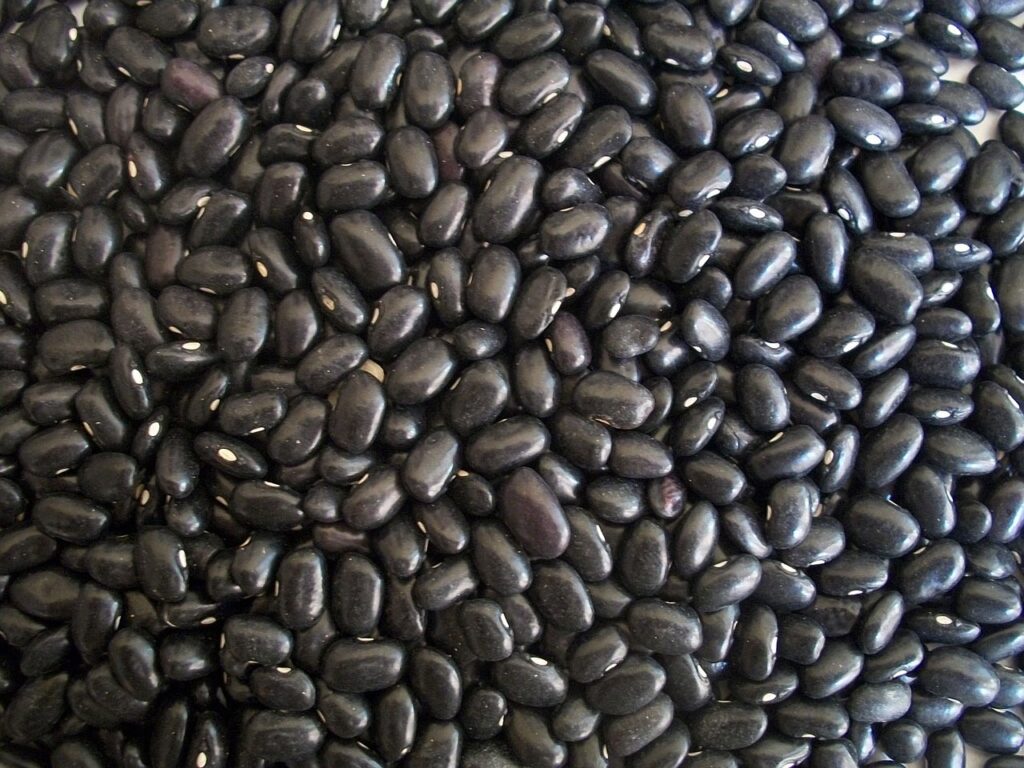Looking to shed those extra pounds while maintaining a dairy-free lifestyle? Look no further! We've got the ultimate guide to the best keto-friendly dairy-free fats that will have you drooling with anticipation.
From creamy avocados to luscious coconut oil, these fats are not only delicious but also support your ketogenic goals.
But wait, there's more! We'll also reveal some surprising options that you may not have considered.
So, get ready to discover a world of dairy-free fats that will take your keto journey to the next level.
Avocado

Avocado is a versatile and delicious ingredient that can be easily incorporated into a dairy-free keto diet. This fruit is loaded with heart-healthy monounsaturated fatty acids (MUFAs) that are beneficial for your overall health. With just 114 calories, 10.5g of fat, and 1g of net carbs in half an avocado, it's a perfect addition to your low-carb, high-fat diet.
You can use avocado in various ways to enhance your meals. It can be sliced and added to salads, blended into smoothies, or enjoyed on top of breakfast plates. Avocado can also be used as a spread or as a base for dips, providing a creamy texture and a satisfying taste.
When it comes to cooking, avocado oil is a great option. It has a high smoke point, making it suitable for high-heat cooking methods. Other dairy-free keto-friendly fats include coconut oil, olive oil, and MCT oil. These options can be used in cooking or as dressings for salads and vegetables.
Incorporating avocado into your dairy-free keto diet isn't only delicious but also provides you with essential nutrients and healthy fats. So go ahead and enjoy this versatile fruit as a dairy-free fat option on your keto journey.
Olive Oil
Olive oil is a versatile and heart-healthy fat that can be easily incorporated into a dairy-free keto diet. Here are some key facts about olive oil:
- Olive oil is a staple in the heart-healthy Mediterranean diet, containing 119 calories and 13.5g of fat per tablespoon. It's a good source of monounsaturated fats, which are beneficial for heart health.
- It's ideal for light sautéing, dressings, or drizzling over cooked meats or vegetables. The flavor of olive oil enhances the taste of food, making it a popular choice in various recipes.
- Olive oil fills you up and helps keep cholesterol levels lower. It contains antioxidants that protect against inflammation and oxidative stress, which are associated with various diseases.
- It can be used for various purposes, such as light sautéing, dressings, or drizzling over cooked meats or vegetables. Its versatility makes it a go-to option for dairy-free keto cooking.
- Olive oil is a rich source of heart-healthy monounsaturated fatty acids (MUFAs) and is often used in salads, smoothies, or breakfast plates. Incorporating olive oil into your dairy-free keto diet can support weight loss and overall well-being.
Coconut Oil

Coconut oil, a versatile and flavorful dairy-free fat, is a rich source of medium-chain triglycerides, making it an ideal addition to a keto diet. It's a plant-based oil that's suitable for individuals with lactose intolerance or those following a dairy-free lifestyle. With its high fat content, coconut oil provides a concentrated source of energy, which is essential for those on a ketogenic diet.
One of the benefits of coconut oil is its high smoke point of 350°F, which makes it suitable for cooking and baking at higher temperatures without breaking down. This makes it a versatile option for sautéing vegetables, frying meats, or even making keto-friendly desserts.
In terms of nutritional content, coconut oil contains 130 calories and 14g of fat per tablespoon. It can be used in various ways, such as adding it to bulletproof coffee for a creamy texture, using it as a cooking oil in place of other fats, or incorporating it into dairy-free desserts for added richness.
Coconut oil can also be found in other forms such as full-fat coconut milk or coconut cream, which can be used in recipes that require a thicker consistency. This makes it a suitable substitute for animal fats in many dairy-free keto recipes.
Nuts and Nut Butter
You can incorporate nuts and nut butter into your dairy-free keto diet to add healthy fats, protein, and flavor.
Almonds are a great choice for their high content of healthy fats, while hazelnuts can provide a creamy texture to your meals.
If you're looking for a rich flavor, macadamia nuts are an excellent option.
Remember to choose nut butter varieties without added sugar to keep your carb intake in check.
Almonds for Healthy Fats
Almonds and almond butter are excellent sources of healthy fats for those following a dairy-free keto diet. Here are some key points about almonds and almond butter:
- 1 tablespoon of almond butter provides 98 calories, 8.9g of fat, and 1.5g of net carbs.
- 1 ounce of almonds contains 164 calories, 14.1g of fat, and 2.6g of net carbs, making them a great keto-friendly option.
Opt for nut butter without added sugar to avoid extra carbs and enjoy almonds as a convenient, satisfying snack.
- Almonds and almond butter provide a good source of unsaturated fats, making them excellent additions to a dairy-free keto meal plan.
- Incorporating almonds into your diet can help increase your fat intake while avoiding dairy products, which is especially beneficial for those who are sensitive to dairy or have a problem with lactose.
Hazelnuts for Creamy Texture
For a creamy texture in your dairy-free keto recipes, hazelnuts and hazelnut butter are a versatile and high-fat option. These nuts offer a rich source of fats and can be used to thicken sauces, dressings, and desserts without dairy.
With their smooth and buttery consistency, hazelnuts are a great choice for adding creaminess to dishes like smoothies, soups, and dairy-free ice creams. Each ounce of hazelnuts contains 178 calories, 17g of fat, and just 2g of net carbs, making them a satisfying high-fat, low-carb option.
When choosing hazelnut butter, be sure to opt for varieties without added sugars to avoid extra carbs.
Macadamia Nuts for Rich Flavor
To continue exploring dairy-free fats for a creamy texture, macadamia nuts and nut butter are an excellent choice due to their rich flavor and versatility in keto recipes.
Here are some reasons why macadamia nuts are a great addition to a keto-friendly diet:
- Macadamia nuts provide a good source of healthy monounsaturated fats, which are essential for a high-fat diet.
- They're low in net carbs, with just 2 grams of net carbs per ounce, making them a suitable option for those following a keto lifestyle.
Macadamia nut butter can be used in a variety of ways, such as in smoothies, as a dip, or as a spread on low-carb crackers or vegetables. These nuts are incredibly versatile and can add a delicious nutty flavor to both sweet and savory dishes.
With their rich flavor, macadamia nuts are a great choice to incorporate into your dairy-free keto recipes.
Chia Seeds
Chia seeds offer numerous health benefits on a dairy-free keto diet.
With their high content of omega-3 fatty acids and fiber, they provide a well-rounded source of essential fats and promote digestive health.
Additionally, chia seeds can be easily incorporated into various dishes and used as a topping, making them a versatile and nutritious option for those following a high-fat, low-carb diet.
Health Benefits of Chia
Rich in heart-healthy omega-3 fatty acids and packed with fiber, chia seeds offer a nutrient-dense addition to the keto diet. Incorporating chia seeds into your meals can provide several health benefits:
- Cardiovascular health: Chia seeds are rich in omega-3 fatty acids, which can support heart health and reduce inflammation.
- Digestive health: The high fiber content in chia seeds promotes healthy digestion and can aid in weight management.
- Keto-friendly: With only 2.1g of net carbs per ounce, chia seeds are a suitable addition to a keto diet that focuses on low-carb, high-fat foods.
- Versatile: Chia seeds can be easily incorporated into various dishes, including smoothies, yogurt, salads, and baked goods, providing a convenient way to boost your healthy fat intake.
- Alternative source: If you're looking for other options, flaxseeds are also an excellent source of omega-3 fatty acids and can be used in keto-friendly recipes to enhance the fat content.
Incorporating chia seeds into your diet can provide a range of health benefits while adhering to a keto and dairy-free lifestyle.
Cooking With Chia
Incorporating chia seeds into your cooking can add a healthy dose of omega-3 fatty acids, fiber, and dairy-free fats to your keto-friendly meals. Chia seeds are incredibly versatile and can be used in a variety of recipes.
You can add them to smoothies for an extra nutritional boost or use them as a topping for salads and yogurt alternatives. Chia seeds can also be used to make delicious and healthy puddings. Simply combine them with a liquid, such as almond milk, and let them sit for a few hours until they thicken. This creates a satisfying and nutritious dessert.
With their high omega-3 content, chia seeds are an excellent addition to a dairy-free keto lifestyle.
Chia as a Topping
To continue adding dairy-free fats to your keto-friendly meals, consider using chia seeds as a versatile topping option. These tiny seeds are a great source of omega-3 fatty acids, fiber, and protein, making them a nutritious addition to your diet.
Here are some ideas on how to incorporate chia seeds as a topping:
- Sprinkle them on salads for added crunch and nutritional benefits.
- Use them to top yogurt alternatives for a satisfying and filling snack.
- Make chia pudding by combining chia seeds with a dairy-free milk alternative and letting them soak overnight.
- Add them to smoothies for an extra boost of nutrients.
- Incorporate chia seeds into oatmeal alternatives or baked goods to enhance their nutritional profile.
Flaxseed
Flaxseed, a versatile ingredient that adds a boost of omega-3 fatty acids and fiber to your meals, is a great option for those following a keto-friendly, dairy-free diet. This tiny seed is a powerhouse of nutrition and can be easily incorporated into various dishes.
One of the key benefits of flaxseed is its high omega-3 fatty acid content, which is essential for brain health and reducing inflammation in the body. Additionally, flaxseed is an excellent source of dietary fiber, which aids in digestion and promotes feelings of fullness.
When it comes to the macronutrient profile, flaxseed provides 150 calories, 12g of fat, and 0g of net carbs per 2 tablespoon serving. This makes it an ideal choice for boosting fat content and adding a nutty flavor to your meals while staying within the parameters of a keto-friendly, dairy-free diet.
Whether you choose to grind flaxseed and add it to smoothies or yogurt, or use it as an egg substitute in baking, this versatile ingredient is sure to enhance both the taste and nutritional value of your meals. Incorporating flaxseed into your diet can help support heart health and contribute to overall well-being.
Fatty Fish

Fatty fish, such as salmon and sardines, are a delicious and nutritious addition to a keto-friendly, dairy-free diet. Here are some key facts about fatty fish:
- Rich in Omega-3 Fatty Acids: Fatty fish like salmon, sardines, herring, anchovies, trout, albacore tuna, and mackerel are packed with omega-3 fatty acids. These essential fats have been shown to support heart health and reduce inflammation in the body.
- Dairy-Free Source of Healthy Fats: Fatty fish provide an excellent source of healthy fats and protein for a dairy-free keto diet. They offer essential nutrients without the need for dairy products, making them a great option for those avoiding lactose.
- Flavorful Alternative to Dairy-Based Fats: Including fatty fish in your dairy-free keto diet can add flavor and variety to your meals. Salmon or sardines, for example, can be grilled, baked, or pan-fried to create delicious dishes that are both satisfying and nutrient-dense.
- Promote Heart Health: Fatty fish, like salmon and mackerel, are particularly beneficial for heart health due to their high omega-3 content. These fats have been shown to reduce the risk of heart disease and improve overall cardiovascular health.
- Nutritious and Delicious: Fatty fish, including salmon and anchovies, offer a tasty and nutritious dairy-free fat option for those following a keto diet. They're low in net carbs and provide a good amount of protein, making them a satisfying choice for a dairy-free keto meal.
When incorporating fatty fish into your diet, it's important to check food labels for any hidden sources of dairy or added sugars. Opt for fresh or frozen fish rather than canned options, as they tend to have less lactose. Pair your fatty fish with low-carb vegetables and full-fat coconut milk to create a well-balanced and dairy-free keto meal.
Seeds (Such as Pumpkin or Sunflower)
Seeds such as pumpkin or sunflower are a versatile and nutritious addition to a keto-friendly, dairy-free diet. These seeds are excellent sources of fat, making them a great option for those following a low-carb eating plan. Chia seeds and sunflower seeds, in particular, are rich in healthy fats, including monounsaturated and polyunsaturated fats, which are beneficial for heart health.
In addition to being high in fat, seeds like pumpkin or sunflower also provide essential nutrients such as magnesium, zinc, and omega-3 fatty acids. These nutrients are important for overall health and can support various bodily functions. Incorporating seeds into your meals can be as simple as adding them as toppings in salads, blending them into smoothies, or using them in keto-friendly baked goods.
If you're looking for a creamy dairy-free option, you can also make your own nut butter using seeds like sunflower or pumpkin. This can be a great alternative to traditional butter products or whole milk for those following a dairy-free lifestyle. Additionally, full-fat coconut milk can be used as a substitute for half and half in recipes, providing a rich and creamy texture to your keto-friendly dishes.
Hemp Seeds

Hemp seeds offer a range of other nutritional benefits in addition to being a great source of dairy-free fats for the keto diet. They're packed with important nutrients like magnesium, iron, and zinc, which support overall health.
Cooking and storing hemp seeds is simple – keep them in an airtight container in the refrigerator to maintain freshness, and you can use them in a variety of recipes to add a nutritious boost to your meals.
Other Nutritional Benefits
If you're following a dairy-free keto diet, incorporating hemp seeds into your meals can provide you with a wealth of additional nutritional benefits. Hemp seeds are packed with essential fatty acids, including omega-3 and omega-6, which promote heart health and reduce inflammation.
They're also high in protein, containing all nine essential amino acids, making them a valuable addition to a dairy-free keto diet. In addition, hemp seeds are a good source of fiber, aiding in digestion and promoting gut health.
These seeds also provide essential vitamins and minerals like vitamin E, magnesium, and phosphorus, contributing to overall health and well-being. You can easily incorporate hemp seeds into your meals by adding them to salads, smoothies, and dairy-free yogurt alternatives, enhancing both the flavor and nutritional profile of your dishes.
Cooking and Storage Tips
To ensure optimal freshness and nutrient preservation, proper cooking and storage techniques are essential for hemp seeds.
Since hemp seeds are a great source of dairy-free fats for the keto diet, it's important to make sure they're stored correctly. To maintain freshness, store hemp seeds in an airtight container in the refrigerator. This will help prevent them from going rancid and preserve their nutritional value.
When using hemp seeds for cooking, it's best to add them after the dish has been cooked to preserve their nutrients.
Additionally, to extend the shelf life of hemp seeds, consider storing them in the freezer.
Coconut Milk
Coconut milk, a versatile and creamy dairy-free alternative, is a fantastic source of healthy fats that can be enjoyed on a ketogenic diet. Here are some key facts about coconut milk:
- Coconut milk is a rich and creamy dairy-free alternative that can be used in various dishes and recipes. It adds a unique flavor and texture to curries, soups, smoothies, and desserts.
- It's a great source of healthy fats, making it suitable for a ketogenic diet. The fats in coconut milk are predominantly medium-chain triglycerides (MCTs), which are easily converted into energy by the body.
- When choosing coconut milk, opt for unsweetened varieties without added sugars to keep net carb intake low. This ensures that you can enjoy the creamy goodness of coconut milk without derailing your keto goals.
- Coconut milk can be used to create delicious dairy-free versions of classic dishes like ice cream, creamy sauces, and lattes. This is especially beneficial for those who are lactose intolerant or following a dairy-free lifestyle.
- In addition to being keto-friendly, coconut milk also offers potential benefits for gut health. It contains lauric acid, which has antimicrobial properties and may help support a healthy balance of gut bacteria.
Incorporating coconut milk into your ketogenic diet can provide a delicious and nutritious way to enjoy dairy-free fats while staying on track with your health goals.
Conclusion
In conclusion, incorporating dairy-free fats into a keto diet is essential for maintaining ketosis and providing the body with energy.
Just like a well-tuned engine relies on premium fuel, our bodies thrive on the high-quality fats found in avocados, olive oil, coconut oil, nuts, seeds, and fatty fish. These options not only support ketosis but also offer numerous health benefits.
So, fuel your body with these delicious and nutritious sources of dairy-free fats to experience the full benefits of a keto lifestyle.







